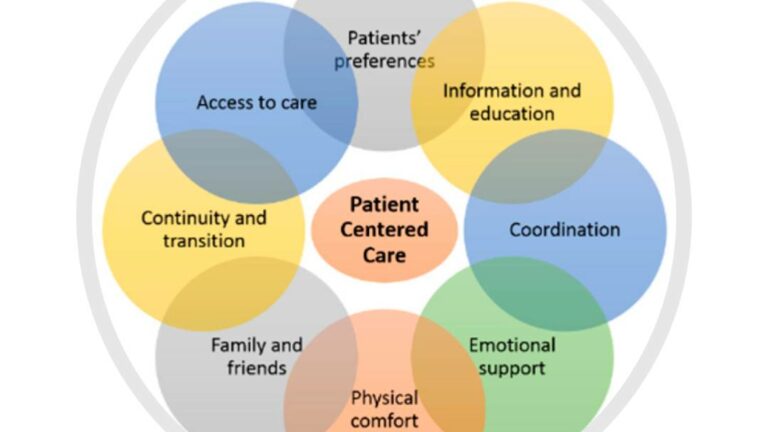
Patient-centered care is a healthcare delivery model that puts the patient at the center of their own care. This model of care is focused on the needs, preferences, and values of the individual patient, and it strives to provide them with the best possible outcomes. In order to do this, patient-centered care requires close collaboration between the patient and their healthcare team. It also emphasizes communication, education, and empowerment, so that patients can make informed decisions about their own health.
GOALS OF PATIENT-CENTERED CARE
The goals of patient-centered care are to:
1. Improve patient satisfaction and health outcomes
2. Enhance communication and collaboration between patients and their healthcare providers
3. Increase patient involvement in decision-making
4. Empower patients to take an active role in their own care
5. Promote continuity of care and coordination among different care providers
6. Improve efficiency and reduce costs
7. Reduce health disparities
NURSES’ ROLE IN PATIENT-CENTERED CARE.
The role of the nurse in patient-centered care is to partner with patients and their families to provide care that is individualized, coordinated, and focused on the unique needs and preferences of each patient. Nurses play a vital role in ensuring that patients receive the best possible care by providing assessment, education, and support to patients and their families.
Nurses use a variety of tools and techniques to assess patients’ needs and preferences, including taking a thorough medical history, performing physical examinations, and ordering diagnostic tests. They also use their clinical judgment to identify potential problems and make recommendations for care.
Nurses play an essential role in patient education, providing information about disease processes, treatments, and self-care. They also serve as a resource for patients and families, providing support and guidance as they navigate the healthcare system.
Nurses play a vital role in coordinating care and working with other healthcare team members to ensure that patients receive the services they need. They also serve as advocates for patients, working to ensure that their rights are protected and that their voices are heard.
IMPORTANCE OF PATIENT-CENTERED CARE.
There are many benefits to patient-centered care, both for the patient and for the healthcare provider. When the patient is at the center of care, they are more likely to be engaged in their own health and have better outcomes. They are also more likely to be satisfied with their care and to have a better experience overall.
Patient-centered care can also lead to improved communication between the patient and the healthcare team, as well as better coordination of care. When the patient is involved in decision-making, they are more likely to understand their options and to make informed choices about their care.
There are some challenges to providing patient-centered care, particularly in complex healthcare environments. However, the benefits of this approach far outweigh the challenges, and patient-centered care is becoming increasingly common in healthcare settings.